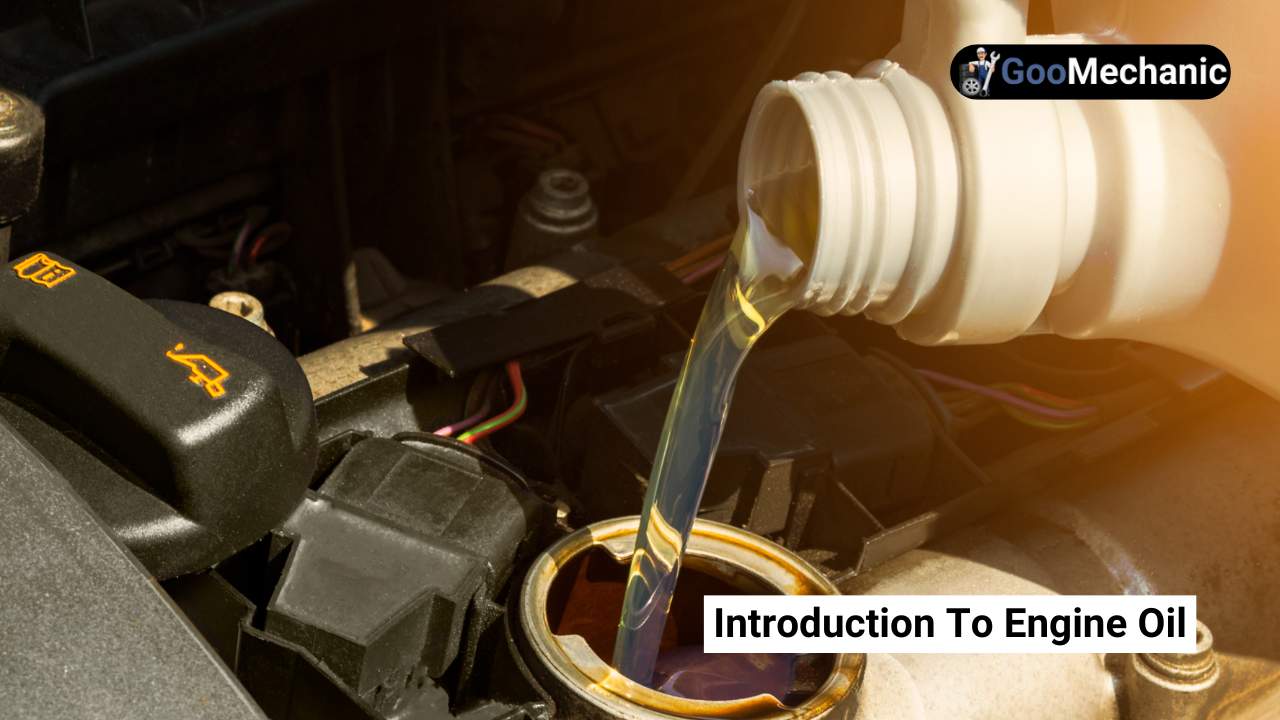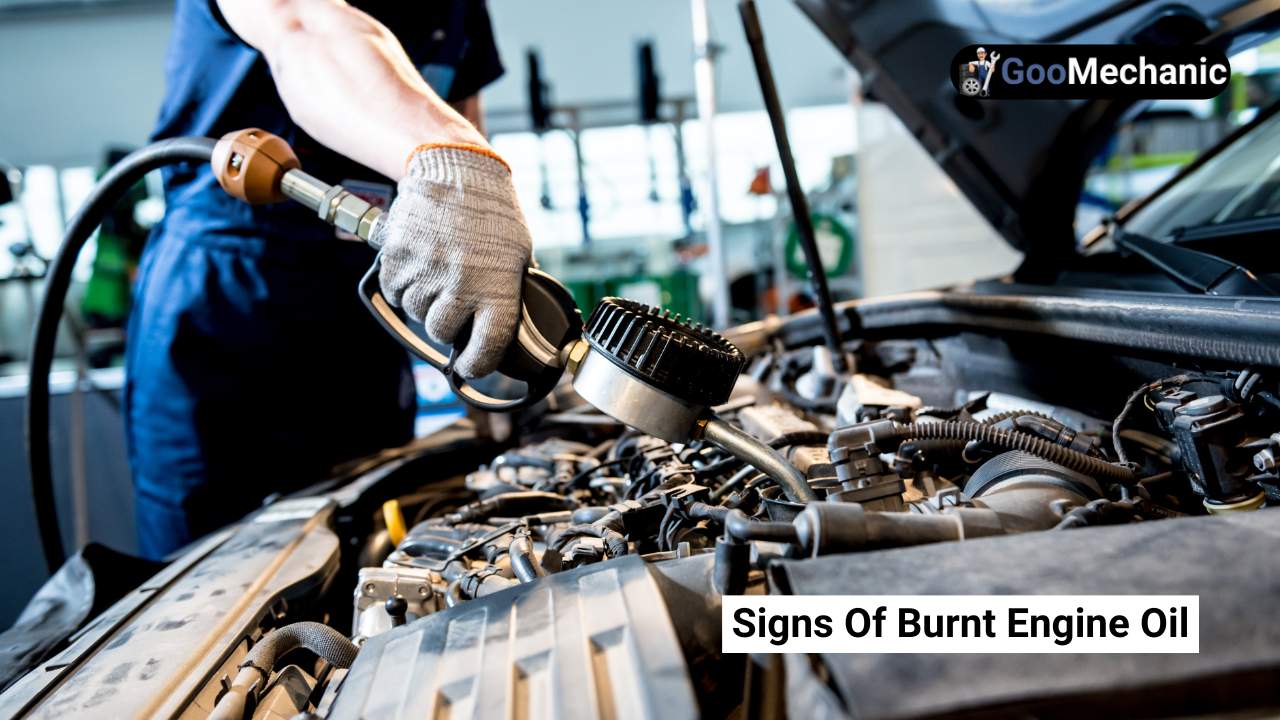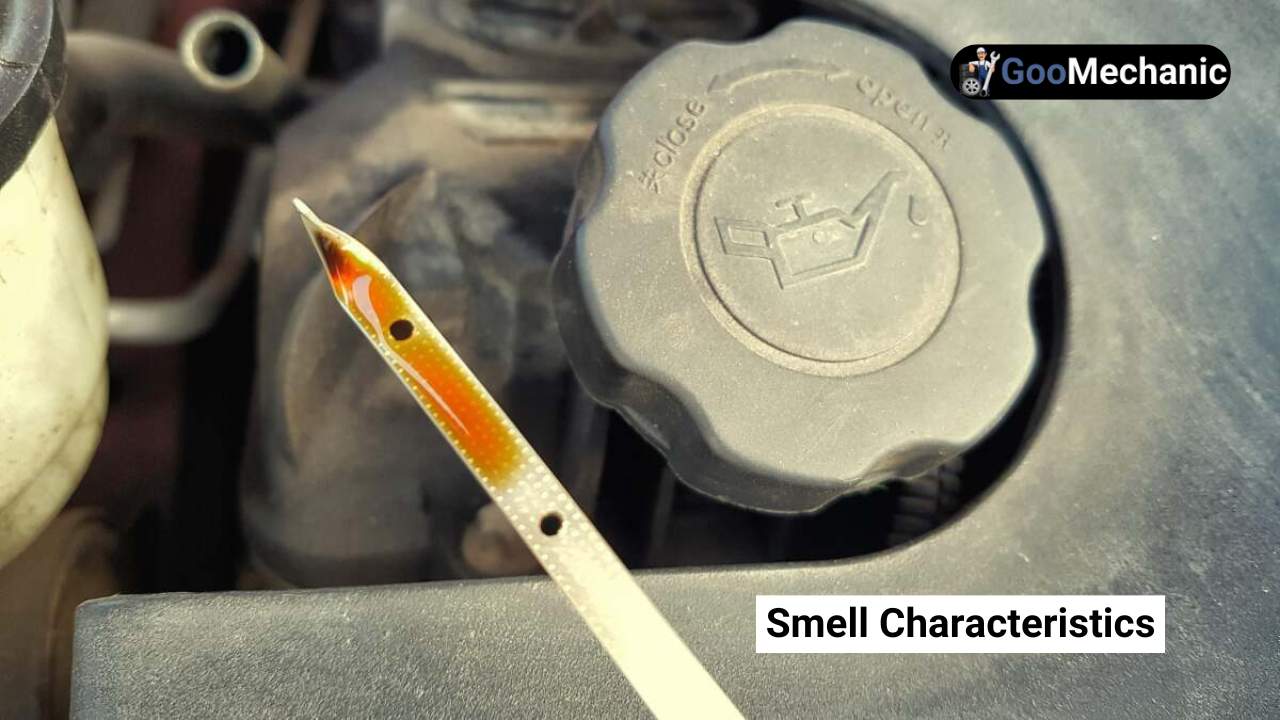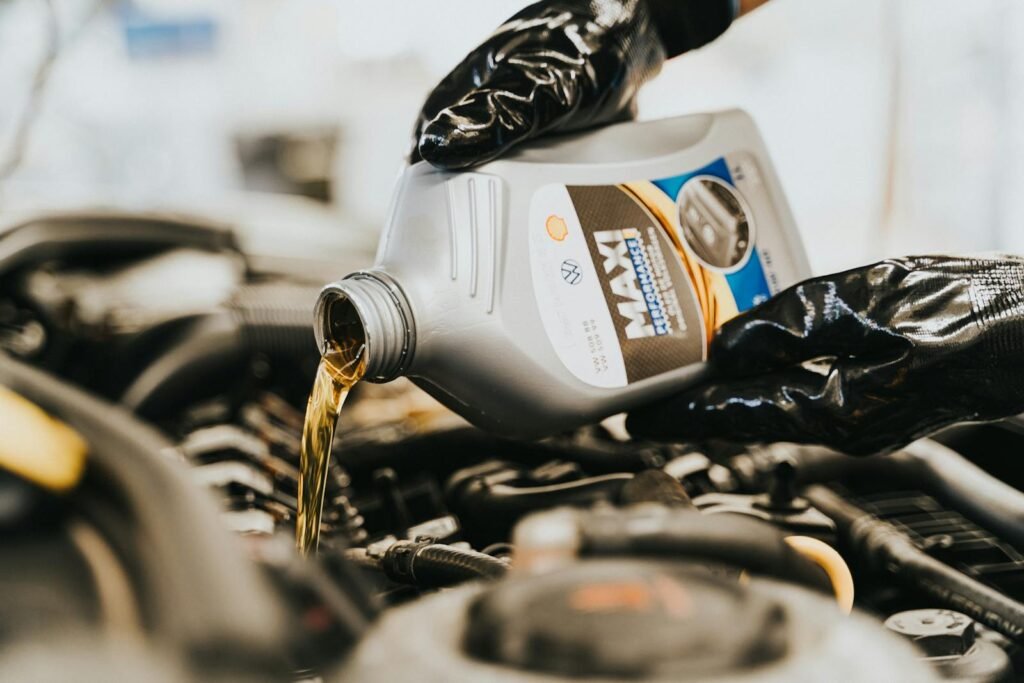Burnt engine oil smells acrid and pungent, resembling burnt rubber or charred meat. The odor is strong and unmistakable.
Engine oil is vital for lubricating and cooling engine components. Over time, oil can degrade due to heat and contamination. Burnt engine oil not only smells unpleasant but also indicates a potential issue with your vehicle. This smell often signals that the oil has lost its effectiveness, leading to increased friction and possible engine damage.
Regular oil changes can prevent this issue and maintain engine health. Always pay attention to unusual smells from your vehicle, as they can be early warnings of mechanical problems. Addressing them promptly ensures your engine runs smoothly and efficiently.
Introduction To Engine Oil

Engine oil is essential for your car’s health. It lubricates the engine’s moving parts. This helps to reduce friction and heat. Without engine oil, the engine can wear out quickly.
Understanding engine oil is crucial for all car owners. Knowing the types and their importance is the first step.
Importance Of Engine Oil
Engine oil plays a vital role in your car’s performance. Here are some key benefits:
- Lubrication: Reduces friction between moving parts.
- Cooling: Helps to dissipate heat from the engine.
- Cleaning: Removes sludge and deposits from the engine.
- Protection: Prevents corrosion and wear.
Common Types Of Engine Oil
There are different types of engine oil. Choosing the right one is important. Here are the main types:
| Type | Description |
|---|---|
| Conventional Oil | Suitable for light-duty engines. |
| Synthetic Oil | Provides better performance and protection. |
| High-Mileage Oil | Designed for cars with over 75,000 miles. |
| Diesel Oil | Formulated for diesel engines. |
Causes Of Burnt Engine Oil
Burnt engine oil can be a serious issue for your car. It not only smells bad but also indicates deeper problems. Understanding the causes is the first step to fixing them. There are two main causes: overheating and oil contamination.
Overheating
Overheating can cause engine oil to burn. When the engine runs too hot, the oil breaks down. This produces a distinct, burnt smell. Your engine may lack coolant or have a faulty radiator. Both lead to overheating.
Here are some common signs of engine overheating:
- High temperature gauge
- Steam from the hood
- Strange noises
| Cause | Effect |
|---|---|
| Low coolant level | Engine overheats |
| Faulty radiator | Engine overheats |
Oil Contamination
Oil contamination is another reason for burnt engine oil. Dirt, debris, and fuel can mix with the oil. This causes it to burn and smell bad. Contaminated oil does not lubricate well. This leads to engine damage.
Watch for these signs of oil contamination:
- Dirty oil on the dipstick
- Excessive exhaust smoke
- Reduced engine performance
Regular oil changes help prevent this issue. Clean oil keeps the engine healthy. Always use the correct oil type for your car.
Signs Of Burnt Engine Oil

Burnt engine oil can cause many problems. Knowing the signs helps you act fast. Here are some key indicators.
Color Changes
Fresh engine oil is amber or golden. Burnt oil turns dark brown or black.
Check the dipstick. If the oil is dark, it may be burnt. Look for thick, sludgy texture.
Smoke Emission
Burnt oil often produces smoke. Blue smoke from the exhaust is a clear sign.
Check the engine bay. Smoke there means oil is burning inside.
Smelling burnt oil inside the car? That’s another red flag.
Smell Characteristics

Burnt engine oil has a distinct smell. It can be a sign of engine problems. Understanding the smell can help you identify issues early.
Acrid Odor
The smell of burnt engine oil is acrid. It is sharp and unpleasant. It can irritate your nose. Imagine the smell of burning rubber or plastic. It is not a pleasant smell. You will notice it quickly.
Comparison To Other Smells
Burnt engine oil smells different from other car fluids. Here is a comparison:
| Fluid | Smell Description |
|---|---|
| Burnt Engine Oil | Acrid, sharp, burning rubber |
| Coolant | Sweet, like maple syrup |
| Gasoline | Pungent, strong, fuel-like |
| Transmission Fluid | Oily, like hydraulic fluid |
Impact On Engine Performance
Burnt engine oil affects engine performance. It can lead to serious problems. Knowing the signs helps prevent damage. One key sign is the smell. Understanding its impact is crucial.
Reduced Lubrication
Burnt engine oil loses its ability to lubricate. The oil becomes thicker and less effective. This leads to poor lubrication. The engine parts start to grind against each other. This can cause serious damage over time.
Increased Wear And Tear
Poor lubrication increases wear and tear. Parts degrade faster without proper oil. Metal parts rub together and create friction. This friction leads to heat and more damage. The engine can break down faster.
Health And Environmental Concerns
Burnt engine oil has a distinct, unpleasant odor. This smell is more than a nuisance. It poses significant health and environmental concerns. Understanding these risks is crucial for your safety and the planet’s well-being.
Toxic Fumes
Burnt engine oil releases toxic fumes. These fumes contain harmful chemicals. Breathing them can cause serious health issues.
- Headaches
- Dizziness
- Respiratory problems
Long-term exposure can lead to more severe health conditions. These include lung damage and even cancer.
Environmental Pollution
Burnt engine oil contributes to environmental pollution. It releases harmful substances into the air, water, and soil.
| Pollutant | Impact |
|---|---|
| Hydrocarbons | Water contamination |
| Heavy metals | Soil degradation |
| Carbon monoxide | Air pollution |
These pollutants harm wildlife and disrupt ecosystems. They also contribute to climate change.
Preventive Measures
Preventive measures are crucial for avoiding the unpleasant smell of burnt engine oil. Keeping your engine in top condition helps prevent such issues. Regular maintenance and using quality oil are essential steps.
Regular Maintenance
Regular maintenance is key to a healthy engine. Here are some steps to follow:
- Check the oil level every month.
- Change the oil as per the manufacturer’s guide.
- Inspect the engine for leaks or damage.
- Replace the oil filter during oil changes.
- Keep the engine clean and free from debris.
Routine checks can help spot problems early. Early detection can save you from costly repairs.
Using Quality Oil
Using quality oil is vital for engine longevity. Cheap oil can cause issues. Here’s why quality oil matters:
| Quality Oil | Cheap Oil |
|---|---|
| Better lubrication | Poor lubrication |
| Reduces wear and tear | Increases engine wear |
| Stable at high temperatures | Breaks down quickly |
| Less sludge formation | More sludge formation |
Always choose oil recommended by the car manufacturer. Check the oil viscosity grade and quality certifications.
In summary, regular maintenance and using quality oil prevent burnt engine oil smell. These practices ensure your engine runs smoothly and efficiently.
When To Seek Professional Help
Burnt engine oil smell can be a serious issue. This smell indicates underlying problems with your car’s engine. Knowing when to seek professional help is crucial. Ignoring these signs can lead to costly repairs or even engine failure.
Warning Signs
- Persistent Burnt Smell: If the burnt oil smell doesn’t go away, seek help.
- Smoke from the Engine: Smoke indicates severe engine problems.
- Oil Leaks: Leaking oil can cause a burnt smell and damage.
- Engine Overheating: Overheating can burn oil and cause damage.
- Low Oil Levels: Low oil can lead to engine parts burning.
Choosing A Mechanic
Finding the right mechanic is important. Follow these tips to choose wisely.
- Read Reviews: Check online reviews for honest opinions.
- Ask for Recommendations: Friends and family can suggest reliable mechanics.
- Check Certifications: Ensure the mechanic has proper certifications.
- Get a Quote: Request a detailed quote before work begins.
- Warranty: Make sure the mechanic offers a warranty on repairs.
| Issue | Action |
|---|---|
| Persistent Burnt Smell | Seek Professional Help |
| Smoke from the Engine | Visit a Mechanic |
| Oil Leaks | Get Repairs Done |
| Engine Overheating | Consult an Expert |
| Low Oil Levels | Check with a Mechanic |
Early action can save your engine and your wallet. Always address burnt oil smells promptly.
Frequently Asked Questions
Can I Still Drive My Car If It Smells Like Burning Oil?
Driving a car that smells like burning oil can be dangerous. Stop driving and check for oil leaks or engine issues immediately. Consult a mechanic to avoid severe damage.
How Do You Know If Your Engine Is Burning Oil?
Blue smoke from the exhaust indicates oil burning. Check for low oil levels frequently. Notice increased oil consumption. Look for oil residue on spark plugs. A strong burning oil smell also suggests the issue.
How Much Does It Cost To Fix Burning Oil?
Fixing burning oil costs between $100 and $5,000. The price depends on the issue’s severity and parts needed.
Why Does My Car Smell Like Oil But No Leak?
Your car may smell like oil due to a spill during an oil change, a loose oil filter, or oil residue on the engine.
Conclusion
Recognizing the smell of burnt engine oil can save you from costly repairs. It’s crucial to act quickly. Regular maintenance can prevent these issues. Keep your engine healthy and your car running smoothly. Always be attentive to unusual smells. Your vehicle will thank you with better performance and longevity.
